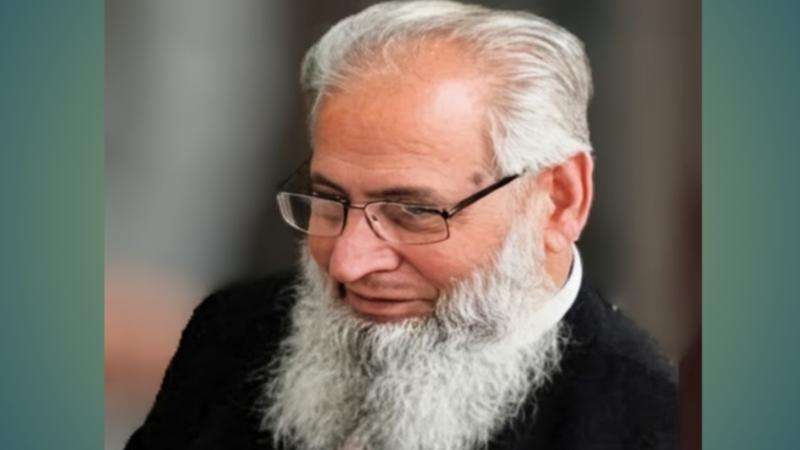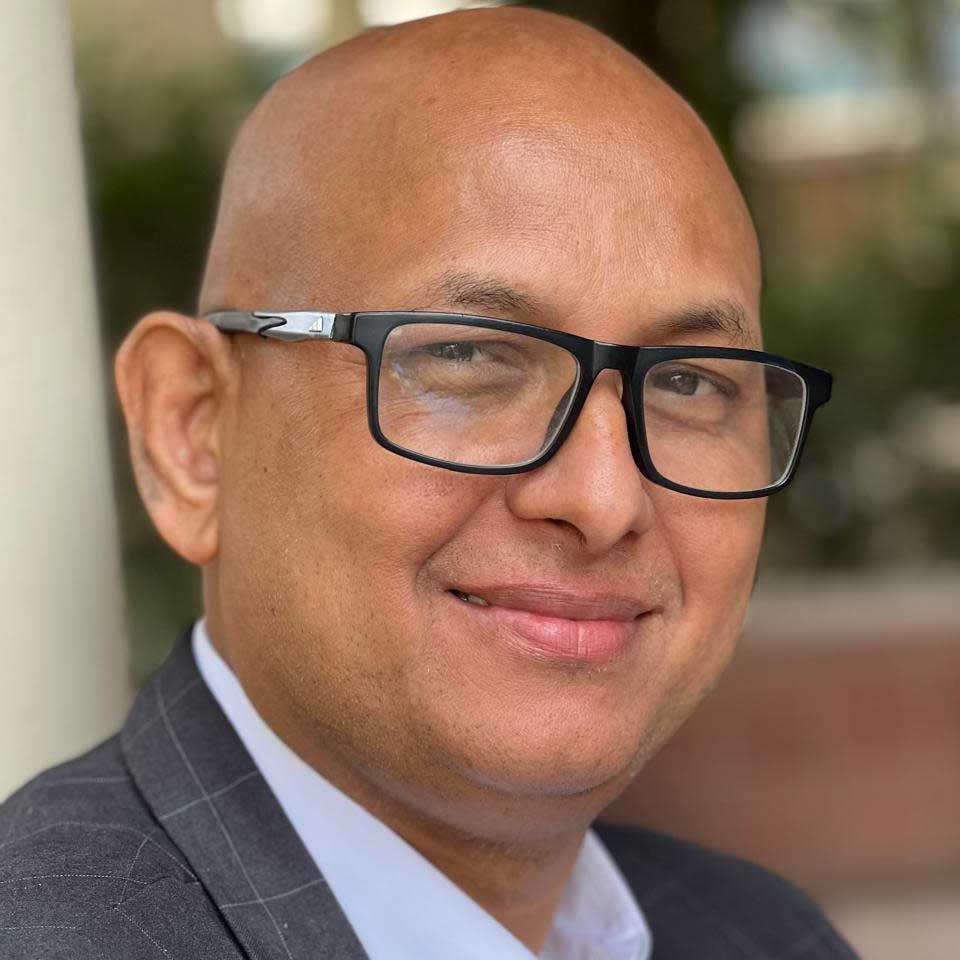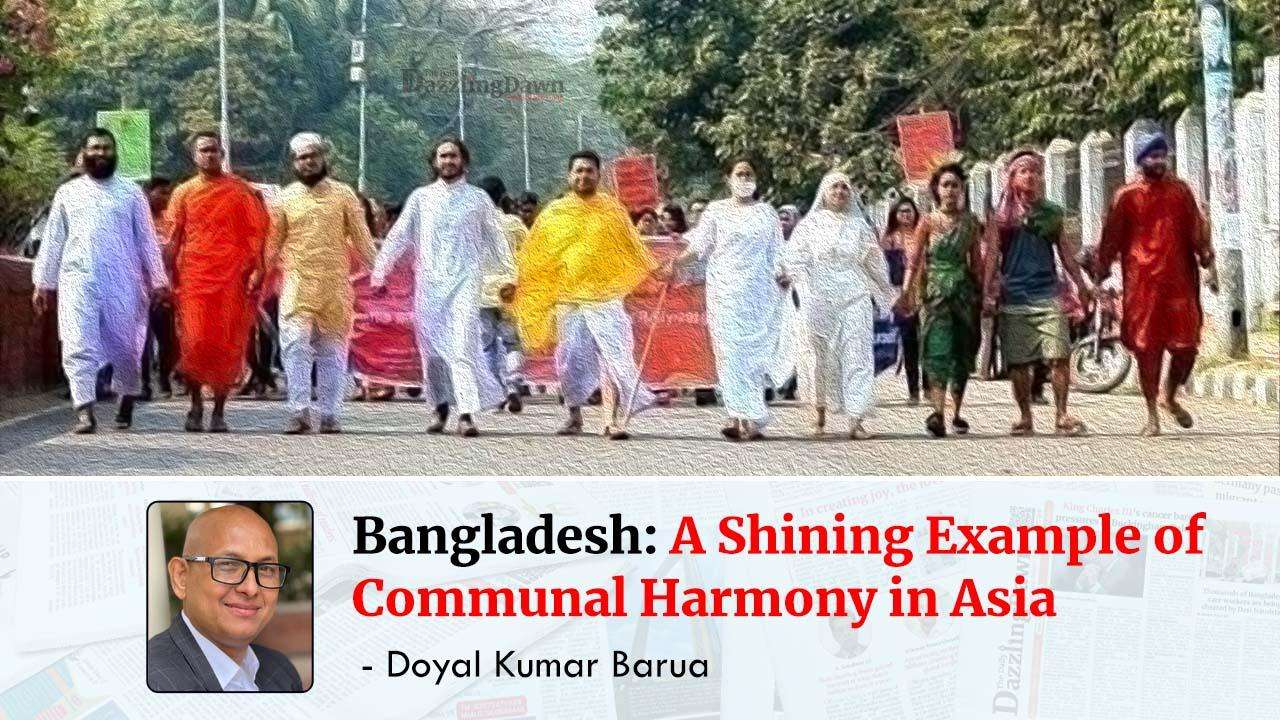Bangladesh stands as a beacon of communal harmony, celebrated worldwide for its inclusive spirit. Rooted in its people’s deep sense of faith and mutual respect, Bangladesh embodies a living testament to religious tolerance. The citizens of this nation, steadfast in their own beliefs, embrace communal harmony as an ideal worth emulating. After all, every religion in the world champions peace and upholds respect for others’ faith as a guiding principle.
Our culture is a beautiful mosaic, woven with the threads of Islam, Hinduism, Buddhism, Christianity, and other faiths. Political parties, social and cultural organizations work collectively to uphold the fundamental rights of all religious groups. Driven by respect for diverse religious practices, the people of Bangladesh are united in their vision of building a harmonious and inclusive society. The core tenets of humanity—compassion, truth, and justice—are enshrined in every faith. These values illuminate the path toward universal welfare and tranquility.
A Legacy of Peaceful Coexistence
Communal harmony is not a mere aspiration in Bangladesh—it is a lived reality. For centuries, people of different faiths have practiced their religions side by side, fostering a shared spirit of unity. Muslims constitute nearly 90% of the population, but Hindus, Buddhists, and Christians thrive peacefully within this fabric of mutual respect. This harmonious coexistence is undoubtedly a source of pride for Bangladesh in South Asia.
With a population of over 160 million, Bangladesh is a land of diversity—multi-religious, multi-ethnic, and multilingual. The country’s constitution guarantees all citizens the freedom to practice their chosen faith peacefully. Religious minorities, constituting around 12% of the population, include Hindus (10%), Buddhists (1%), Christians (0.5%), and smaller ethnic groups.
Bangladesh’s rich tapestry of festivals further highlights its unity in diversity. Muslim celebrations such as Eid-ul-Fitr and Eid-ul-Adha; Hindu festivals like Durga Puja; Buddhist observances like Buddha Purnima; and Christian festivities such as Christmas are embraced by all communities. Secular celebrations like Pahela Baishakh (Bengali New Year) and International Mother Language Day also see participation from people across religions and ethnicities. This unique blend of traditions transcends religious and ethnic boundaries, fostering an environment where everyone belongs.
The Philosophy of Harmony
Every religion emphasizes the sanctity of peace and the importance of building bridges between communities. As social beings, we are called to foster relationships with friends, neighbors, and fellow citizens, regardless of their faith. Life’s journey—from education and livelihood to rituals in death—requires mutual cooperation. Humanity itself is the cornerstone of all religions. Without it, one loses the essence of being human.
The great poet of Bangladesh, Kazi Nazrul Islam, beautifully encapsulated this spirit in his poem Samyabadi:
"Let us sing the song of equality,
Where all barriers have dissolved,
Where Hindus, Buddhists, Muslims, and Christians unite."
A Call to Action
To uphold Bangladesh’s legacy of communal harmony, every citizen must commit to protecting the rights, dignity, and freedoms of all. This calls for a mindset that values collective welfare over individual or sectarian interests. At every level of society—be it governance, politics, or education—mutual respect and inclusivity must be ingrained.
The state must ensure equal rights for all citizens, regardless of their religion or ethnicity. Even minority communities must feel they are equal stakeholders in the nation’s progress. Without such guarantees, the fabric of harmony may fray. A non-communal outlook must permeate every layer of society, from politics to administration, fostering an environment where all voices are heard, and all lives valued equally.
The Path to a Prosperous Bangladesh
A prosperous and peaceful Bangladesh can only be built on the foundation of communal harmony. People desire peace, not discord; they yearn for a life of joy and security. The state bears the responsibility of creating this environment.
As the Bengali saying goes, “Above all, humanity reigns supreme.” Communalism divides and isolates, but true identity lies in our shared humanity. It is our actions that define us as the best of creation. Let us step away from the shadows of division and walk toward the light of unity, for it is only through harmony that peace can prevail in society.
---
The writer is a columnist, President of the Chittagong University Alumni Association of Bashundhara, and a former Trustee of the Buddhist Religious Welfare Trust.








.svg)

